Warthog fistfights, barrel goblins, and wooden ghosts: This action-RPG is 10 times weirder than Elden Ring
Clash: Artifacts of Chaos is unapologetically unique—and absolutely uncompromising.
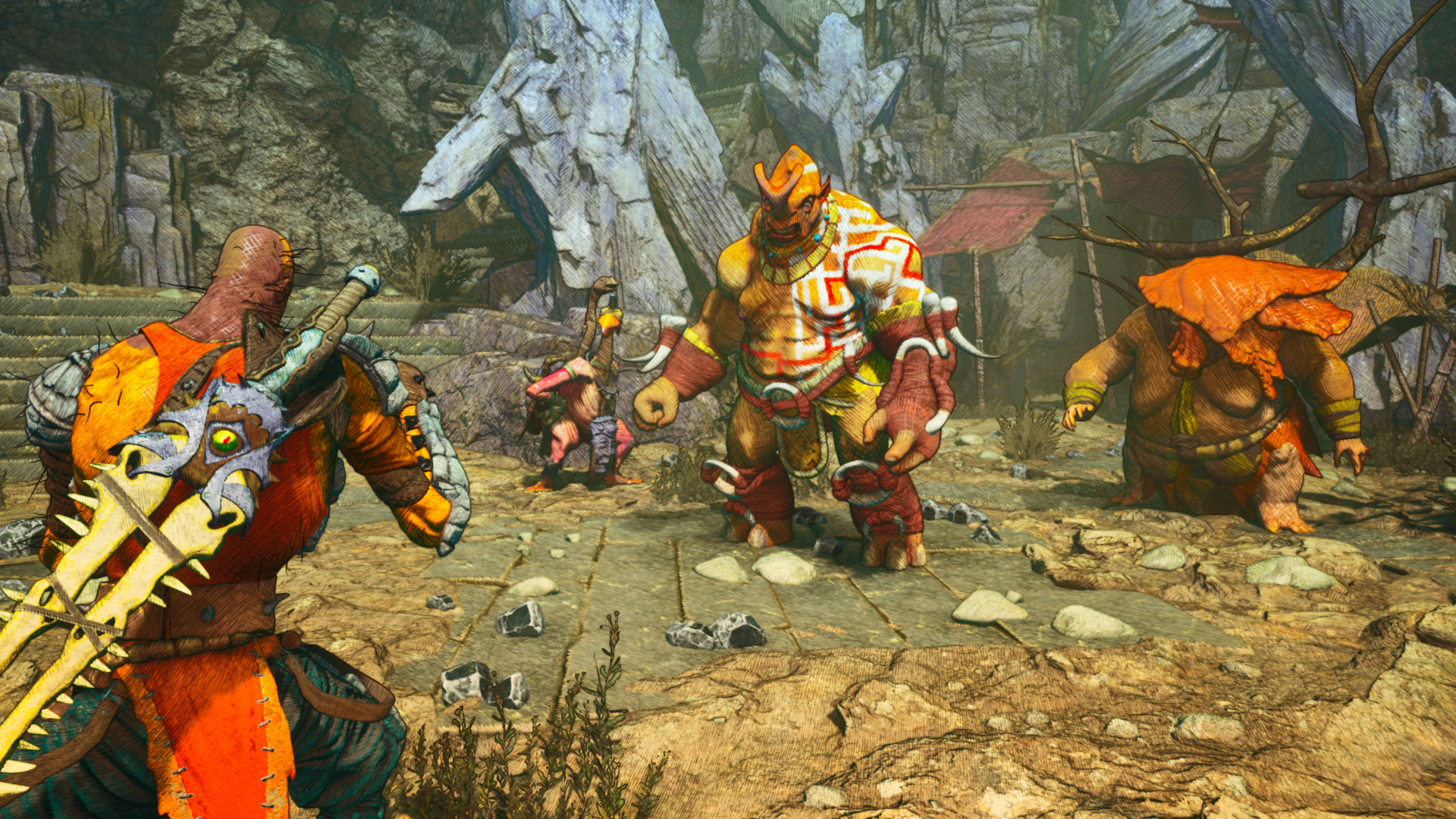
Every enemy in Clash: Artifacts of Chaos is like its own bizarre work of art. From an antelope with horns for legs, to a grotesque, frying pan-wielding barrel goblin, to a silent warrior in some kind of symbiotic relationship with a crab, every single one is so creative and lurid that you just want to walk up, stare at them and drink in all the weird details. But I can tell you from experience that if you do that, they'll smash your face in until you turn into a ghost made of wood. Er, more on that later.
ACE Team's games have always been unapologetically strange, and it's a strangeness that goes so much deeper than just a surreal look or a few funny ideas. From Rock of Ages' competitive mix of tower defence, demolition, bowling, and art history, to Abyss Odyssey's attempt to make a 2D platforming roguelike that's also a fighting game, the studio's output feels genuinely experimental in a way few others can match. It doesn't always work, but it's never anything less than utterly unique.
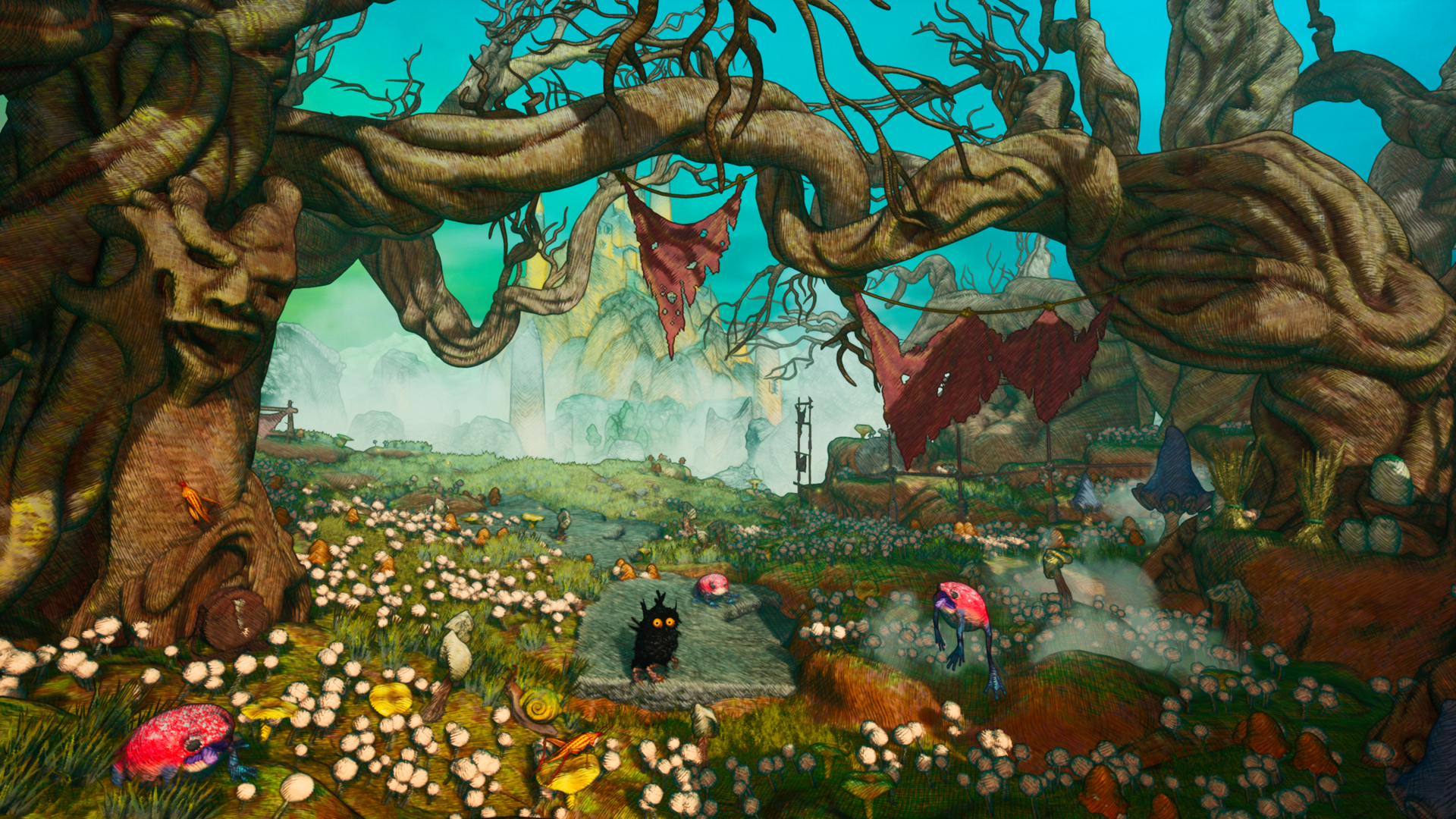
So it is again as the developer returns to the world of its original 2009 debut, Zeno Clash. The setting is a sort of science-fantasy post-apocalypse that feels equal parts Jim Henson, John Blanche and Salvador Dali, where everyone seems to resolve all their problems with punches. If you liked gym and art class, you're in the right place. Clash is sort of a sequel, but mutates the formula of the original in all sorts of ways, most noticeably moving from first-person to third-person, and taking place in a continuous world you travel across, rather than confined levels.
As in Zeno Clash, combat is the focus, and despite it being a singleplayer experience, these battles feel deeply inspired by competitive fighting games. They recreate the same feeling of testing your opponent's defences, looking for an opening to unload a combo. Parries and dodges are key, but your enemies can parry too, and as in a fighting game, if your attack is blocked you're left exposed. Your biggest strength is animation cancelling—you can interrupt an attack into a dodge or a special move, skipping that moment of post-attack vulnerability, but forcing you to predict your opponent's movements lest you end up in an even worse position afterwards.
That need to read your enemies and learn their movements and attacks shows the game's other, even stronger influence—the Souls games. Combat is precise and very deadly, rewarding clear thinking as much as reflexes. The world is a winding path, bristling with shortcuts and alternate routes, much like the first Dark Souls' Lordran. And, like the Souls games, Clash is proudly idiosyncratic.
One of the first tooltips I read in the game is "You can only pass through thorn walls when you are made of wood". What on earth does that mean? Turns out it means that I must return either when I am dead, or when I have woken myself up in the middle of the night, during which times I am a wooden ghost who walks in an alternate world with its own enemies and challenges. But all of that is information I have to discover through trial and error and experimentation, while the game is happy to watch me blunder.
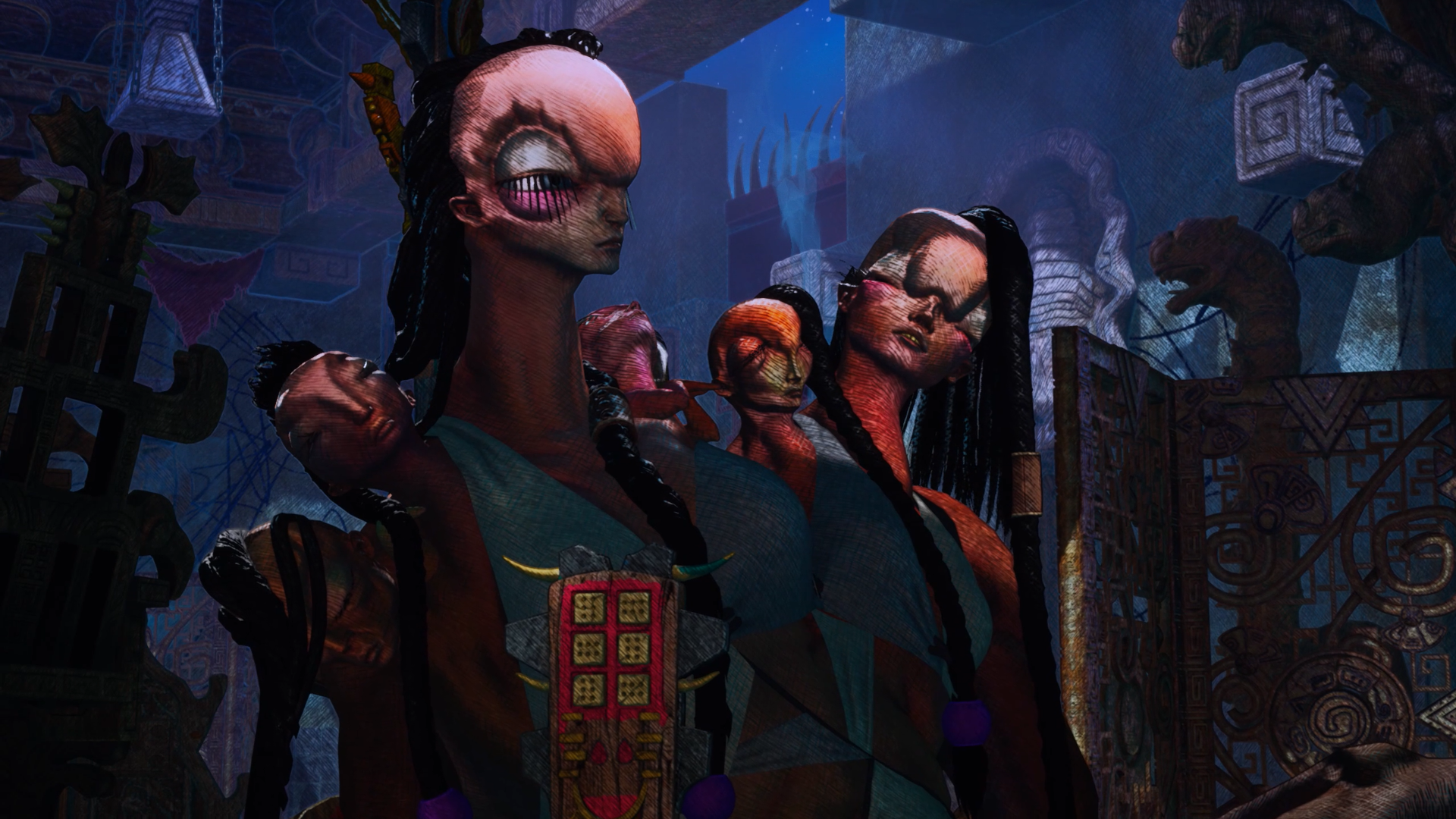
It takes similar struggles and many unfortunate deaths to work out how to use weapons, armour, and, er, replacement body parts; how to level up and upgrade abilities; how to unlock new fighting stances; and exactly how far I have to lure a shrieking dinosaur away from my corpse before the game will let me jump back into my real, non-wooden body. Like Dark Souls, Clash's world and systems come together into a giant puzzle you're invited to figure out—it refuses to hold your hand or even point out where to go next on your journey.
Keep up to date with the most important stories and the best deals, as picked by the PC Gamer team.
The thing about soulslikes is that the vast majority of them are superficial imitators—they copy elements of FromSoftware's series wholesale, and are only mysterious and vague because they copy the mysterious and vague elements of Dark Souls. Clash isn't an imitator, it's a follower—it emulates not the individual elements of those games, but their philosophy. Like them, it is unapologetically strange in its own unique and distinct way, and rewards you for getting on its level, instead of ever stooping to yours.
Of course, that does mean it's a prickly experience, and I suspect many players will understandably not have the patience for its under-explained weirdness. At one point in my journey, I spend about an hour fist-fighting the same giant warthog, dying over and over. I haven't yet figured out how to level up, and I'm clearly vastly underpowered compared to this irritable monster, but I'm determined to uncover the secrets of a mysterious totem standing behind it. So I just keep bashing my head against the creature, learning its patterns, getting more and more hits in each time, until finally I beat it. I approach the totem, activate its powers and I'm transported to a shadowy room… with an even harder fight in it. I'm hooked, but I certainly would've been within my rights to drop my controller and sulk.
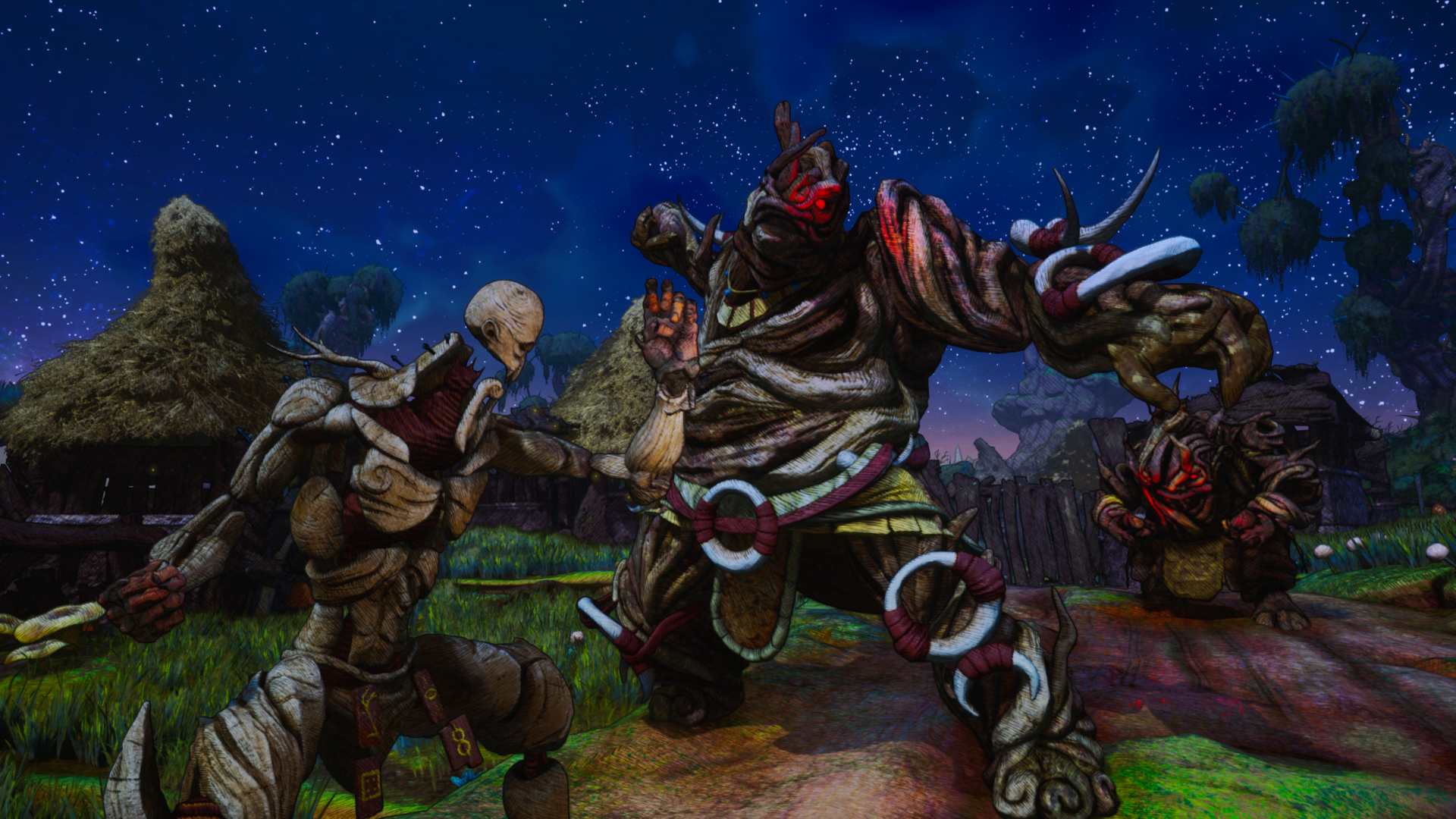
In Clash, persistence is its own reward. Later in my quest, an area is gated behind an intimidating fight—a burly beastmaster and his huge companion. I know I'm in for a test of everything I've learned so far. But, wait, is that companion… a warthog?
The beastmaster has no idea how long I've been training for this moment, how much I have already dedicated my life to porcine pugilism. As I batter him and his pet into the dirt with ease, I feel the satisfaction of having got one over on the game—a feeling all the warmer for having been so hard earned.
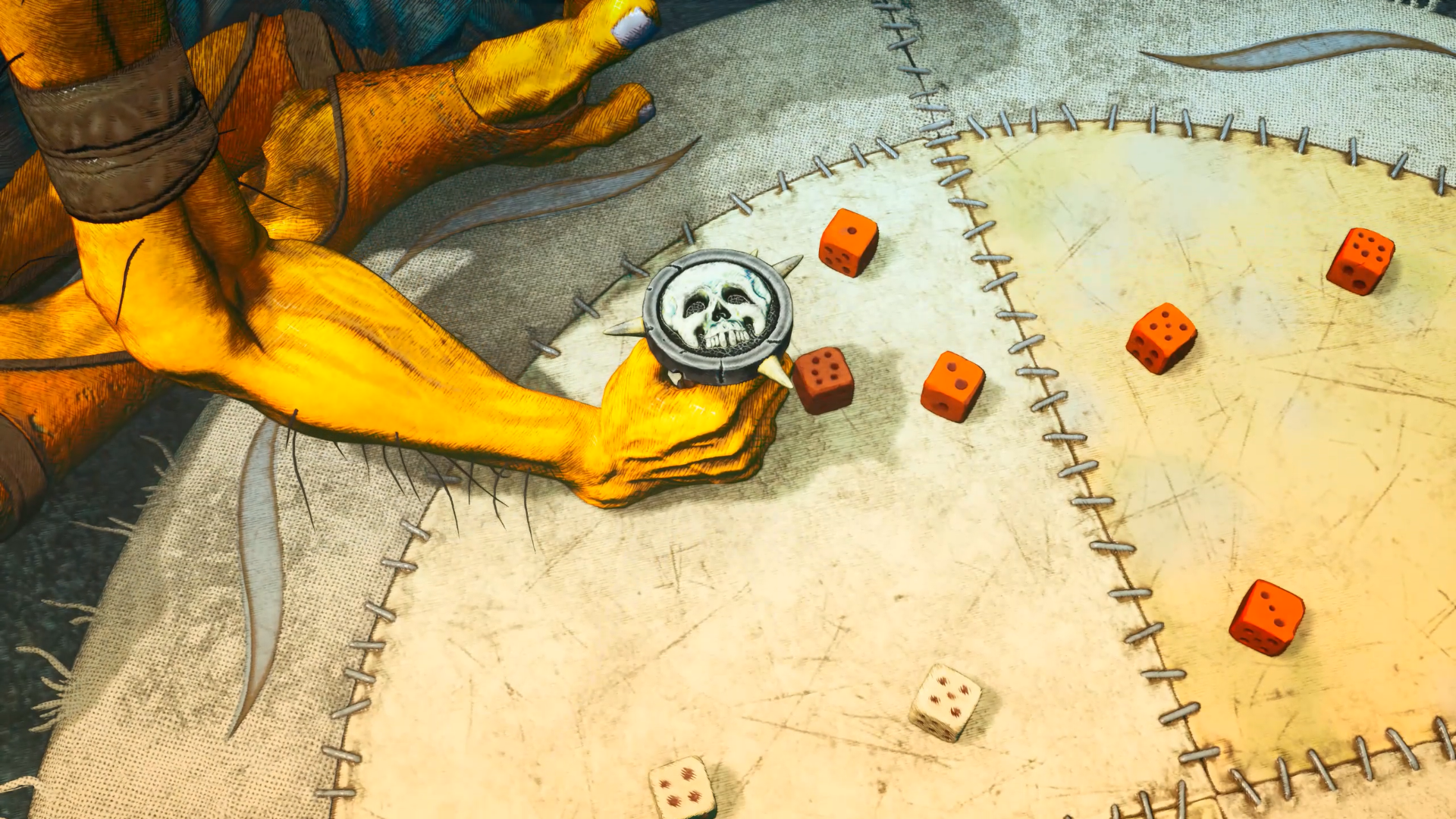
More than anything, Clash feels like the right kind of game to live in this strange, hostile setting ACE Team have been building since 2009. In a world where more often than not you can't even tell what species your enemy is, why would anything else be clear and simple? With its inhabitants that value strength above all, why should the game itself have any patience for weakness?
If that sounds like your kind of weirdness, you can check out Clash: Artifacts of Chaos for yourself on Steam on March 9.

Formerly the editor of PC Gamer magazine (and the dearly departed GamesMaster), Robin combines years of experience in games journalism with a lifelong love of PC gaming. First hypnotised by the light of the monitor as he muddled through Simon the Sorcerer on his uncle’s machine, he’s been a devotee ever since, devouring any RPG or strategy game to stumble into his path. Now he's channelling that devotion into filling this lovely website with features, news, reviews, and all of his hottest takes.

